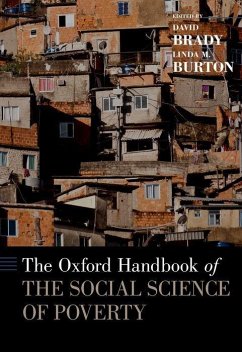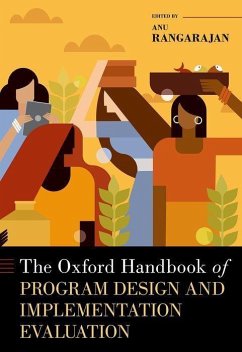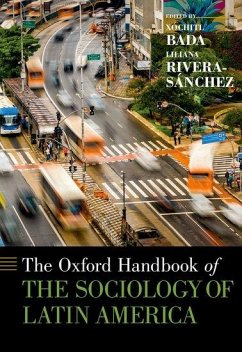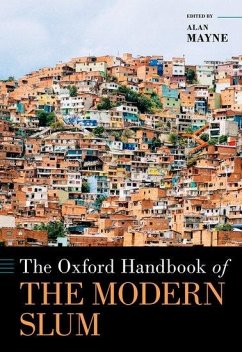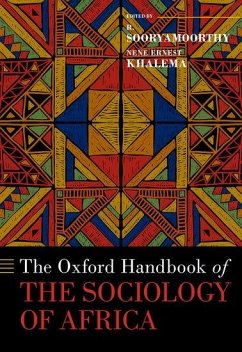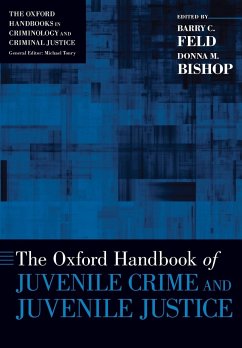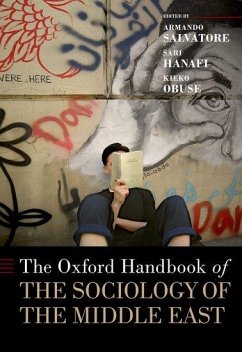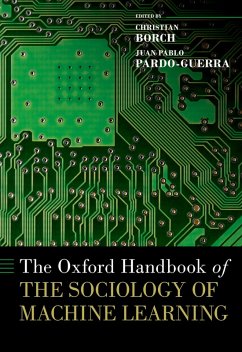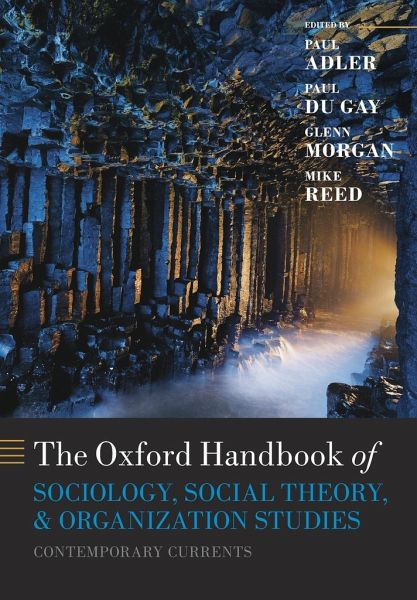
The Oxford Handbook of Sociology, Social Theory, and Organization Studies
Contemporary Currents
Herausgegeben von Adler, Paul S.; du Gay, Paul; Morgan, Glenn et al.
Versandkostenfrei!
Versandfertig in 1-2 Wochen
62,99 €
inkl. MwSt.

PAYBACK Punkte
31 °P sammeln!
Sociology and social theory has always been a major source of new perspectives for organization studies. Access to a series of authoritative accounts of theorists and research themes in sociology and social theory which have influenced developments in organization studies is essential for those wishing to deepen and extend their knowledge of the intersection of sociology and organization studies. This goal is achieved by drawing on a group of internationally renownedscholars committed in their own work to strengthening these links and asking them to provide critical accounts of particular theo...
Sociology and social theory has always been a major source of new perspectives for organization studies. Access to a series of authoritative accounts of theorists and research themes in sociology and social theory which have influenced developments in organization studies is essential for those wishing to deepen and extend their knowledge of the intersection of sociology and organization studies. This goal is achieved by drawing on a group of internationally renowned
scholars committed in their own work to strengthening these links and asking them to provide critical accounts of particular theorists and research themes which have straddled this divide.
This volume aims to strengthen ties between organization studies and contemporary sociological work at a time when there are increasing institutional barriers to such cooperation, potentially generating a myopia that constricts new developments. Used in conjunction with its companion volume, The Oxford Handbook of Sociology and Organization Studies: Classical foundations, the reader is provided with a comprehensive account of the productive and critical interaction between sociology and
organization studies over many decades.
Highly international in scope, theorists and themes are drawn from both the USA and Europe in equal measure. Similarly the authors of the chapters are drawn from both sides of the Atlantic. The result is a series of chapters on individuals and key research themes and debates which will provide faculty and post graduate researchers with appreciative, authoritative and critical accounts that can be drawn on to design courses or provided guided reading to the field
scholars committed in their own work to strengthening these links and asking them to provide critical accounts of particular theorists and research themes which have straddled this divide.
This volume aims to strengthen ties between organization studies and contemporary sociological work at a time when there are increasing institutional barriers to such cooperation, potentially generating a myopia that constricts new developments. Used in conjunction with its companion volume, The Oxford Handbook of Sociology and Organization Studies: Classical foundations, the reader is provided with a comprehensive account of the productive and critical interaction between sociology and
organization studies over many decades.
Highly international in scope, theorists and themes are drawn from both the USA and Europe in equal measure. Similarly the authors of the chapters are drawn from both sides of the Atlantic. The result is a series of chapters on individuals and key research themes and debates which will provide faculty and post graduate researchers with appreciative, authoritative and critical accounts that can be drawn on to design courses or provided guided reading to the field



